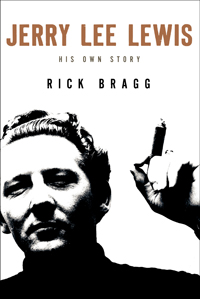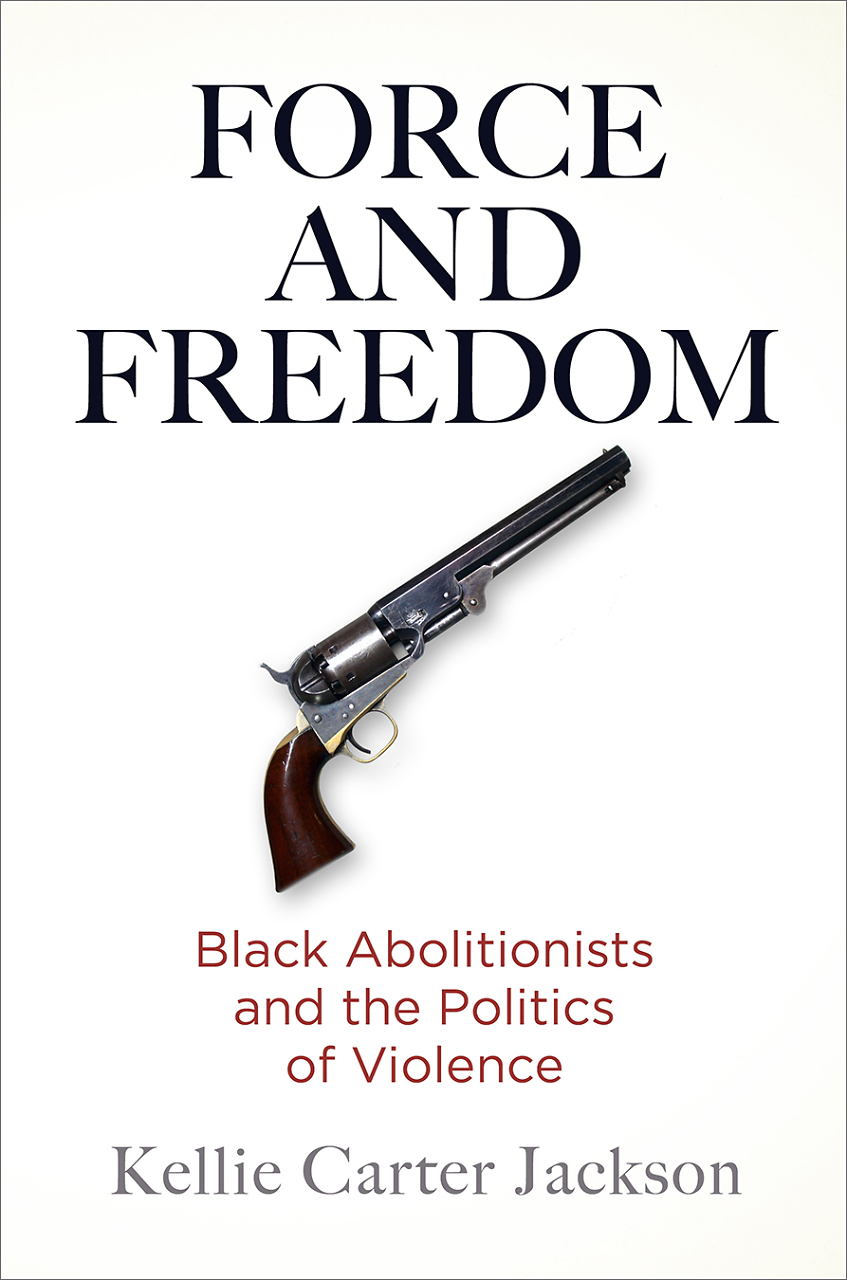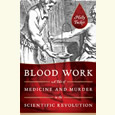Rockin’ His Life Away
Rick Bragg talks with Chapter 16 about writing the epic tale of Jerry Lee Lewis
Since bursting onto the national scene in 1957 with his hit records, “Whole Lotta Shakin’ Goin’ On” and “Great Balls of Fire,” Jerry Lee Lewis has lived a life as wild as his music. He’s electrified audiences with his performances and scandalized the public with his personal life. Pulitzer Prize-winning author Rick Bragg (All Over But the Shoutin’ and The Prince of Frogtown) tells the epic tale in Jerry Lee Lewis: His Own Story.
 With a talent matched only by his ego, Jerry Lee Lewis has repeatedly scaled the heights of success only to come crashing down. The events of his life are a litany of triumphs and tragedies—his rise from crushing poverty to international stardom, the seemingly career-ending scandal of his marriage to his thirteen-year-old cousin Myra, his reinvention as a hardcore honkytonk hit-maker in the late 1960s, the tragic deaths of two sons, epic battles with drug addiction, and multiple brushes with death. Jerry Lee Lewis has survived and endured, becoming an icon of American music.
With a talent matched only by his ego, Jerry Lee Lewis has repeatedly scaled the heights of success only to come crashing down. The events of his life are a litany of triumphs and tragedies—his rise from crushing poverty to international stardom, the seemingly career-ending scandal of his marriage to his thirteen-year-old cousin Myra, his reinvention as a hardcore honkytonk hit-maker in the late 1960s, the tragic deaths of two sons, epic battles with drug addiction, and multiple brushes with death. Jerry Lee Lewis has survived and endured, becoming an icon of American music.
Along the way he created an incredible catalog of recordings. No matter what the style—rock’n’roll, country, blues or gospel—Lewis captured the soul of songs, transforming them into personal statements infused with his personality and singular talent.
Over a course of two years, Bragg conducted extensive interviews with Lewis, and shaped a classically Southern story of poverty, success, tragedy, violence, survival, and the search for salvation. Chapter 16 spoke by phone with Bragg prior to his appearance at the Southern Festival of Books.
Chapter 16: Before starting this project, how familiar were you with Jerry Lee Lewis? Were you a fan, or did you just know the hits, about the scandals, etc.?
Rick Bragg: My mama and my aunts and uncles had grown up with Jerry Lee. They went to see him at Boutwell Auditorium in Birmingham and were just scandalized. They loved it. My Aunt Gracie Juanita said, “I went to see him, and he played the piano with his rear end!” And that just tickled her to death. As they got older they became fans of his country music. I think that happened to a lot of his fans. Rock’n’roll kind of went away from them. It became a music that didn’t have its roots in the South. They didn’t get the rock’n’roll that came after Jerry Lee and Elvis and Carl Perkins and Roy Orbison. When Jerry Lee turned back to roots in the late 60s, they fell in love with him all over again.
I was a child then, so I heard that music, and I grew up with an eight-track of his music blaring out of the window of my car. So I was a fan. I knew the highpoints, but what was fantastic was hearing music that I didn’t know was in his repertoire—thumpin’ blues, his covers of so many old country songs, hearing him cover Ray Charles and “Over the Rainbow”—he could play anything. I thought I was a fan, but heck, I wasn’t anything.
Chapter 16: How did the project come together? And how did you gain access to such extensive interviews?
 Bragg: It came about the way all modern-day projects come about: the phone rang and it was New York on the line. My agent said, “Hey, do you want to write a book about Jerry Lee Lewis?” I thought about it probably a grand total of thirteen seconds, and said, “Sure!” The best books in the world are old men looking back down the road at their life. I thought, “My God, can you imagine Jerry Lee Lewis looking back over his shoulder?” It’s very much a Southern story. It’s a gothic full of religious tones. Sin plays a visceral part, and I thought it was something that I understood and could write about. What I didn’t expect was that there was so much of it. To say his life was complicated doesn’t even begin to cover it.
Bragg: It came about the way all modern-day projects come about: the phone rang and it was New York on the line. My agent said, “Hey, do you want to write a book about Jerry Lee Lewis?” I thought about it probably a grand total of thirteen seconds, and said, “Sure!” The best books in the world are old men looking back down the road at their life. I thought, “My God, can you imagine Jerry Lee Lewis looking back over his shoulder?” It’s very much a Southern story. It’s a gothic full of religious tones. Sin plays a visceral part, and I thought it was something that I understood and could write about. What I didn’t expect was that there was so much of it. To say his life was complicated doesn’t even begin to cover it.
Chapter 16: What type of agreement did you come to with Jerry Lee? Was there an understanding about reviewing material, or did you have a free hand?
Bragg: There was never a discussion of a veto, but if he had hated it, I’m pretty sure the project would have died. He got to know me a little bit, and I told him some stories of my own foibles. I turned a 1969 Camaro Convertible over at 115 miles per hour, and I’ve been rejected by a few dozen women myself, so I guess he figured anybody that would do that might be somebody he could trust with his legacy.
When I first went to see him, the people who were looking after him said, “You know you can’t cuss,” and I thought how in the hell am I going to write 500 pages on Jerry Lee Lewis and not cuss? But he doesn’t allow any blasphemy in his presence. He seems finally and utterly devoted to the notion of trying to be a good man and living out the rest of his life outside the sin that he was so accomplished at. Because when it comes to sinning, there are experts, and then there’s Jerry Lee.
Chapter 16: Jerry Lee Lewis is a larger-than-life figure, and there are many legends about him. Often these have evolved through his own stretching of the truth or the deliberate falsehoods he told just to be contrary. How did you sort out the real story from the legends?
Bragg: I would ask him over and over again, “OK, I hear this; what really happened here?” He would give me his version of what happened, and I believe it was the truth. Because, quite frankly, he’s at a point in his life where it’s just too much trouble to not tell the truth. When we were talking about his drug use, there were days when he would just blank out on it, and other days he would be so honest and open it would make you cringe. When he would talk about medicating himself with morphine shots in his stomach, that’s a road I’ve never walked down. When Jerry Lee Lewis is talking about his life, it’s like feeling your way through broken glass and sawbriars.
Chapter 16: Did you ever have any trouble getting him to open up about particular subjects or incidents from his life?
Bragg: It couldn’t be done unless he was willing to talk, and talk openly, about most of it. He talked about the drug addiction, the women, and the violence. But more than that were his interactions with people he cared about. I really enjoyed writing about him and Elvis. Their first meeting had such a charm and sweetness that it was a joy to write about.
You never know what people will care about. He didn’t care about some of the things we think he should have been swayed by. His marriage to Myra—he obviously still has hurt feelings over that incident but not to the degree that we think he should. And as far as expecting him to be ashamed about it, you can forget that.
The things he talked the least about were the deaths of his sons. It reminded me of something that I wrote a long time ago that “some days, sadness is all there is,” and I think the death of his two boys, even after all this time, is more than he can do.
I’d like to say it was excellent interviewing on my part, but Jerry Lee talked when he wanted to, and when he didn’t want to he rolled over and ate a macadamia nut.
Chapter 16: Was there ever a moment where you felt like you were truly connecting with him in a way few others have?
Bragg: I don’t think it bothers him greatly when he admits to the drug use, or all the women he met on the road, but it seemed to matter to him when he was clawing his way back through those little clubs (in the early sixties), one beer joint or honkytonk at a time. He was literally fighting his way back through those honkytonks, hitting people with a microphone stand, bottles flying and sometimes bullets flying. He really wanted me to understand that, “Jerry Lee Lewis don’t disappear.” As he explained all that, there was this kind of gritty, glittering menace in his eyes. The very notion that he would vanish was something that he would not let happen by force of will. That mattered to him. As he was going through this litany of awful things on the road, he said, “It was killing, is what it was,” and then he stopped a minute and said, “It was beautiful.”
Chapter 16: One aspect of Jerry Lee Lewis’s personality that stood out to me was what you might call an incredibly strong sense of “personal morality.” It certainly doesn’t synch up with what society as a whole might consider moral, but it does seem that no matter how low he sank, there were certain lines that he could never cross.
Bragg: Think about it: where is the torture in all this? The torture is in knowing there is a lake of fire. He’s very concerned with that tenet in the Bible where if you are banished to hell, “Those that have known you will not know you.” Now I’m quoting faith as Jerry Lee quoted it to me: “It will be as if you were never known.” Now, if you’re Jerry Lee Lewis, don’t you think that’s about the worst thing in the whole wide world? He is convinced in the lake of fire. He has never wavered in his belief that there is a hell, and he lived close to the edge of it his entire life.
You’ve got a man who is utterly unrepentant to man. The secular world, the world of man—it troubles him no more than trying to decide what to have for lunch. He’s utterly unconcerned with what people think of him. Other than he wants them to say, “Jerry Lee Lewis? I saw him. Man, what a show!”
More than anything he is concerned with that old question, “Can a man play rock’n’roll music and still go to heaven?” That question still haunts him. He believes he will, but he’s not certain, and that is the great question that comes to visit him at night. The one man that could have talked to him about that great dilemma was Elvis, and Elvis was terrified of that question. It was so close to the bone for him, and it terrified him to the point of walking away the one time Jerry Lee asked him about it.
Chapter 16: Other than Elvis, Jerry Lee Lewis has had more books written about him than any of the early rock’n’rollers, including one of the most famous rock bios ever written, Nick Tosches’s Hellfire. What do you feel that you’ve brought new to his story?
Bragg: The thing that this book has in it is Jerry Lee’s voice. Mine’s in there, too—there’s not any way to keep mine out of it because I believe that if you’re going to be a Southern man then you ought not be ashamed to write like one. But if you look at the introduction, I tried very hard to keep his voice. And even when I wasn’t in his voice, I tried to keep his tone.
He was the great pied piper of rock’n’roll, and he understands his place in the history of that music. Women of my parents’ generation loved Elvis. And they loved Jerry Lee, but the men loved him, too. Jerry Lee is very proud that men got Jerry Lee; they understood Jerry Lee. I say in the book that he was a swinging tire iron. He was a bunched-up fist. There was a beauty in Elvis that men didn’t quite understand, but they got Jerry Lee.
If what this book is supposed to do is give Jerry Lee Lewis’s own story, I think we got as close to it as anybody is going to get. And I was honored to be there listening to it.

Randy Fox is a freelance writer whose writing on music and pop culture has appeared in Vintage Rock, Record Collector, East Nashvillian, Nashville Scene, Jack Kirby Collector, Hardboiled, and many other publications. He lives in Nashville.





